|
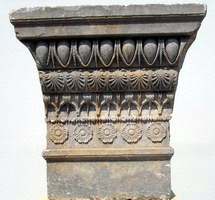 The history of Chios goes back some 8000 years to the people of the Neolithic period who have left bits and pieces at Spilaio in North Chios. Evidence of civilization during the Proto-helladic period has been found in Emboreo. Mycenaean artifacts have been found in Fana and in Chios town. Mythology says that the first colonist of Chios was
Oinopionas from Crete, the grandson of King Minos who taught the inhabitants the art of wine-making. The name Chios supposedly comes from his daughter Chiona though it could also be from the Phoenician word for mastica. The first king of Chios was Amphialos from Evia. It was later settled by the Ionian Greeks from the coast of Asia Minor. By the 7th Century BC it was a major power. Supposedly Homer was born in Chios and his students spread Homeric epic poetry throughout the ancient Greek world. In the 6th century
there was a school of sculpture on the island as well as the ancient temple of Phanios Apollo near Fana in southern Chios. The first democracy of the ancient world, the Great Covenant (Megali Ritra) was founded in 600 BC on Chios and it is believed that Solon based his reforms for Athens on it. This led to a period of peace and prosperity for the Chiotes who were said by Thucydides to be the richest of the Greeks. Though Chios did not establish colonies as did other Greek cities, they did create a number of trading
posts throughout the ancient world. Even in ancient times mastic was traded, for its use in medicines. The history of Chios goes back some 8000 years to the people of the Neolithic period who have left bits and pieces at Spilaio in North Chios. Evidence of civilization during the Proto-helladic period has been found in Emboreo. Mycenaean artifacts have been found in Fana and in Chios town. Mythology says that the first colonist of Chios was
Oinopionas from Crete, the grandson of King Minos who taught the inhabitants the art of wine-making. The name Chios supposedly comes from his daughter Chiona though it could also be from the Phoenician word for mastica. The first king of Chios was Amphialos from Evia. It was later settled by the Ionian Greeks from the coast of Asia Minor. By the 7th Century BC it was a major power. Supposedly Homer was born in Chios and his students spread Homeric epic poetry throughout the ancient Greek world. In the 6th century
there was a school of sculpture on the island as well as the ancient temple of Phanios Apollo near Fana in southern Chios. The first democracy of the ancient world, the Great Covenant (Megali Ritra) was founded in 600 BC on Chios and it is believed that Solon based his reforms for Athens on it. This led to a period of peace and prosperity for the Chiotes who were said by Thucydides to be the richest of the Greeks. Though Chios did not establish colonies as did other Greek cities, they did create a number of trading
posts throughout the ancient world. Even in ancient times mastic was traded, for its use in medicines.
|
|
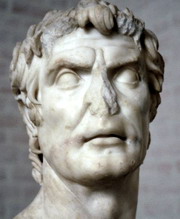 After a period of Persian expansionism when King Darius had installed tyrants in all the Ionian cities that fell under his influence, the revolution of 499 BC saw the Chiotes drive out their tyrant and fought the Persians at the battle of Ladi, only to see the island re-conquered in 493BC. Though forced to fight on the side of the Persians at the battle of Salamis,
the defeat of the Persian fleet brought Chios into the Athenian alliance which brought in a new period of prosperity, arts and culture. In the Peloponnesian war the island was allied with Athens until the catastrophic defeat in Sicily when it fell under Spartan influence, then back to Athenian with the Antalkideio Peace Accord. During Alexander the Great's rule Chios was a Macedonian garrison. With his death it passed to the rule of the Seleucid kings until it regained its independence after the battle of Magnesia
in 189 BC. In 190 BC they allied with the Romans to defeat the Seleucids but was later destroyed by Mithridates. The island was liberated by Sylla in 84 BC and entered a dark age that corresponded with the beginning of Christianity. After a period of Persian expansionism when King Darius had installed tyrants in all the Ionian cities that fell under his influence, the revolution of 499 BC saw the Chiotes drive out their tyrant and fought the Persians at the battle of Ladi, only to see the island re-conquered in 493BC. Though forced to fight on the side of the Persians at the battle of Salamis,
the defeat of the Persian fleet brought Chios into the Athenian alliance which brought in a new period of prosperity, arts and culture. In the Peloponnesian war the island was allied with Athens until the catastrophic defeat in Sicily when it fell under Spartan influence, then back to Athenian with the Antalkideio Peace Accord. During Alexander the Great's rule Chios was a Macedonian garrison. With his death it passed to the rule of the Seleucid kings until it regained its independence after the battle of Magnesia
in 189 BC. In 190 BC they allied with the Romans to defeat the Seleucids but was later destroyed by Mithridates. The island was liberated by Sylla in 84 BC and entered a dark age that corresponded with the beginning of Christianity.
|
|
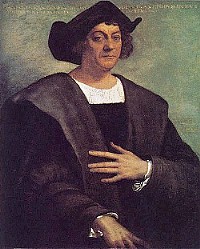 In the 11th Century the Byzantines built Nea Moni (New Monastery) and built the fortress in Chios town to defend the port from Arab pirates. There was a short period where the Franks ruled the island but it gradually fell under the influence of the Genovese who used it ads a transit station for their trading journeys to the east. As the Byzantine
empire weakened the Genovese became more influential on the island. Chios was given to Benedetto Zaccaria in 1307 and was under Genovese rile until 1329 when it was reoccupied by the Venetians under Andronicos Palaiologos. When the Genovese retook the island in 1346 they held it for two more centuries, exploiting the island and its inhabitants and developing the production of mastica. When the production of silk and the introduction of citrus fruits came to Chios, the culture of the island, along with the wealth
of its inhabitants flourished. It was this period that the fortified mastic villages were built. It is also the period when Christopher Columbus either visited the island (as the Genovese of Italy believe) or was born and raised on Chios, as the people of Pirgi say. regardless of what you believe most historian agree that he spent a lot of time on the island, had an interest in the value of mastica and had Chios sailors among his crew. Read more about
Columbus and Chios. In the 11th Century the Byzantines built Nea Moni (New Monastery) and built the fortress in Chios town to defend the port from Arab pirates. There was a short period where the Franks ruled the island but it gradually fell under the influence of the Genovese who used it ads a transit station for their trading journeys to the east. As the Byzantine
empire weakened the Genovese became more influential on the island. Chios was given to Benedetto Zaccaria in 1307 and was under Genovese rile until 1329 when it was reoccupied by the Venetians under Andronicos Palaiologos. When the Genovese retook the island in 1346 they held it for two more centuries, exploiting the island and its inhabitants and developing the production of mastica. When the production of silk and the introduction of citrus fruits came to Chios, the culture of the island, along with the wealth
of its inhabitants flourished. It was this period that the fortified mastic villages were built. It is also the period when Christopher Columbus either visited the island (as the Genovese of Italy believe) or was born and raised on Chios, as the people of Pirgi say. regardless of what you believe most historian agree that he spent a lot of time on the island, had an interest in the value of mastica and had Chios sailors among his crew. Read more about
Columbus and Chios.
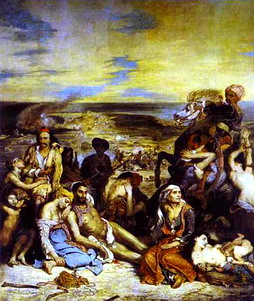 In 1556 the Turkish occupation of Chios began though not much changed from Genovese rule. Because of the mastica Chios was given many privileges and the island flourished under Turkish rule. It was during this period that most of the Catholics left the island after fruitless attempts by the Florentines and the
Venetians to capture it. The island continued to grow economically as the population grew to over 100,000. The school of Chios was founded and many of the mansions and churches were built. During the War for Independence in 1822 Chios had little incentive to rebel. Things were pretty good on the island. But a group of rebels from Samos led by Lykourgos Logothetis landed on Chios and with the help of a small number of locals led by Antonis Bournias, besieged the Turkish garrison at the castle. Though unsuccessful
this infuriated the Turks who saw it as a betrayal by the people of Chios who had enjoyed more privileges than most of the Greeks under Turkish influence. The rebels left the island leaving the local people to face the wrath of the Turkish army which for 15 days slaughtered, burned, raped and sold the survivors into slavery. This act of barbarity shocked the European world and was depicted in the painting 'The Slaughter of Chios' by Delacroix (painting above) which hangs in the Louvre in Paris. Due to public
pressure the Turks allowed some of the Chiotes to return, particularly those involved in the cultivation of mastica though island society was not the same, the nobility having fled to Europe. In the meantime Constantine Kanaris destroyed the Turkish fleet in Chios harbor, killing the Pasha. In 1556 the Turkish occupation of Chios began though not much changed from Genovese rule. Because of the mastica Chios was given many privileges and the island flourished under Turkish rule. It was during this period that most of the Catholics left the island after fruitless attempts by the Florentines and the
Venetians to capture it. The island continued to grow economically as the population grew to over 100,000. The school of Chios was founded and many of the mansions and churches were built. During the War for Independence in 1822 Chios had little incentive to rebel. Things were pretty good on the island. But a group of rebels from Samos led by Lykourgos Logothetis landed on Chios and with the help of a small number of locals led by Antonis Bournias, besieged the Turkish garrison at the castle. Though unsuccessful
this infuriated the Turks who saw it as a betrayal by the people of Chios who had enjoyed more privileges than most of the Greeks under Turkish influence. The rebels left the island leaving the local people to face the wrath of the Turkish army which for 15 days slaughtered, burned, raped and sold the survivors into slavery. This act of barbarity shocked the European world and was depicted in the painting 'The Slaughter of Chios' by Delacroix (painting above) which hangs in the Louvre in Paris. Due to public
pressure the Turks allowed some of the Chiotes to return, particularly those involved in the cultivation of mastica though island society was not the same, the nobility having fled to Europe. In the meantime Constantine Kanaris destroyed the Turkish fleet in Chios harbor, killing the Pasha.
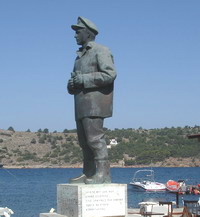 In 1881 an earthquake killed over three thousand people and destroyed most of the buildings that the Turks had left standing. On November 11th 1912 Chios became part of Greece. Since then the island with its ships and history of sea-faring has been an important part of Greek history, culture and economics. In the Second World War
they transported evacuating British and Greek soldiers to the Middle East and fought in the resistance against the Nazi occupation. The past century saw many of the men of Chios leaving the island on ships and some of them making new lives in the United States, England and elsewhere while others worked on the boats and returned to their families between trips. A great many of those who stayed abroad have done quite well for themselves. They too return summers with their families, giving their children, most
of whom were born outside of Greece, a sense of their own history and culture. Any visitor to Chios will be surprised at the number of people who not only speak English, but speak it like an American. In 1881 an earthquake killed over three thousand people and destroyed most of the buildings that the Turks had left standing. On November 11th 1912 Chios became part of Greece. Since then the island with its ships and history of sea-faring has been an important part of Greek history, culture and economics. In the Second World War
they transported evacuating British and Greek soldiers to the Middle East and fought in the resistance against the Nazi occupation. The past century saw many of the men of Chios leaving the island on ships and some of them making new lives in the United States, England and elsewhere while others worked on the boats and returned to their families between trips. A great many of those who stayed abroad have done quite well for themselves. They too return summers with their families, giving their children, most
of whom were born outside of Greece, a sense of their own history and culture. Any visitor to Chios will be surprised at the number of people who not only speak English, but speak it like an American.
For more about Greek history visit my History of Greece
|

 The history of Chios goes back some 8000 years to the people of the Neolithic period who have left bits and pieces at Spilaio in North Chios. Evidence of civilization during the Proto-helladic period has been found in Emboreo. Mycenaean artifacts have been found in Fana and in Chios town. Mythology says that the first colonist of Chios was
Oinopionas from Crete, the grandson of King Minos who taught the inhabitants the art of wine-making. The name Chios supposedly comes from his daughter Chiona though it could also be from the Phoenician word for mastica. The first king of Chios was Amphialos from Evia. It was later settled by the Ionian Greeks from the coast of Asia Minor. By the 7th Century BC it was a major power. Supposedly Homer was born in Chios and his students spread Homeric epic poetry throughout the ancient Greek world. In the 6th century
there was a school of sculpture on the island as well as the ancient temple of Phanios Apollo near Fana in southern Chios. The first democracy of the ancient world, the Great Covenant (Megali Ritra) was founded in 600 BC on Chios and it is believed that Solon based his reforms for Athens on it. This led to a period of peace and prosperity for the Chiotes who were said by Thucydides to be the richest of the Greeks. Though Chios did not establish colonies as did other Greek cities, they did create a number of trading
posts throughout the ancient world. Even in ancient times mastic was traded, for its use in medicines.
The history of Chios goes back some 8000 years to the people of the Neolithic period who have left bits and pieces at Spilaio in North Chios. Evidence of civilization during the Proto-helladic period has been found in Emboreo. Mycenaean artifacts have been found in Fana and in Chios town. Mythology says that the first colonist of Chios was
Oinopionas from Crete, the grandson of King Minos who taught the inhabitants the art of wine-making. The name Chios supposedly comes from his daughter Chiona though it could also be from the Phoenician word for mastica. The first king of Chios was Amphialos from Evia. It was later settled by the Ionian Greeks from the coast of Asia Minor. By the 7th Century BC it was a major power. Supposedly Homer was born in Chios and his students spread Homeric epic poetry throughout the ancient Greek world. In the 6th century
there was a school of sculpture on the island as well as the ancient temple of Phanios Apollo near Fana in southern Chios. The first democracy of the ancient world, the Great Covenant (Megali Ritra) was founded in 600 BC on Chios and it is believed that Solon based his reforms for Athens on it. This led to a period of peace and prosperity for the Chiotes who were said by Thucydides to be the richest of the Greeks. Though Chios did not establish colonies as did other Greek cities, they did create a number of trading
posts throughout the ancient world. Even in ancient times mastic was traded, for its use in medicines.  After a period of Persian expansionism when King Darius had installed tyrants in all the Ionian cities that fell under his influence, the revolution of 499 BC saw the Chiotes drive out their tyrant and fought the Persians at the battle of Ladi, only to see the island re-conquered in 493BC. Though forced to fight on the side of the Persians at the battle of Salamis,
the defeat of the Persian fleet brought Chios into the Athenian alliance which brought in a new period of prosperity, arts and culture. In the Peloponnesian war the island was allied with Athens until the catastrophic defeat in Sicily when it fell under Spartan influence, then back to Athenian with the Antalkideio Peace Accord. During Alexander the Great's rule Chios was a Macedonian garrison. With his death it passed to the rule of the Seleucid kings until it regained its independence after the battle of Magnesia
in 189 BC. In 190 BC they allied with the Romans to defeat the Seleucids but was later destroyed by Mithridates. The island was liberated by Sylla in 84 BC and entered a dark age that corresponded with the beginning of Christianity.
After a period of Persian expansionism when King Darius had installed tyrants in all the Ionian cities that fell under his influence, the revolution of 499 BC saw the Chiotes drive out their tyrant and fought the Persians at the battle of Ladi, only to see the island re-conquered in 493BC. Though forced to fight on the side of the Persians at the battle of Salamis,
the defeat of the Persian fleet brought Chios into the Athenian alliance which brought in a new period of prosperity, arts and culture. In the Peloponnesian war the island was allied with Athens until the catastrophic defeat in Sicily when it fell under Spartan influence, then back to Athenian with the Antalkideio Peace Accord. During Alexander the Great's rule Chios was a Macedonian garrison. With his death it passed to the rule of the Seleucid kings until it regained its independence after the battle of Magnesia
in 189 BC. In 190 BC they allied with the Romans to defeat the Seleucids but was later destroyed by Mithridates. The island was liberated by Sylla in 84 BC and entered a dark age that corresponded with the beginning of Christianity. In the 11th Century the Byzantines built Nea Moni (New Monastery) and built the fortress in Chios town to defend the port from Arab pirates. There was a short period where the Franks ruled the island but it gradually fell under the influence of the Genovese who used it ads a transit station for their trading journeys to the east. As the Byzantine
empire weakened the Genovese became more influential on the island. Chios was given to Benedetto Zaccaria in 1307 and was under Genovese rile until 1329 when it was reoccupied by the Venetians under Andronicos Palaiologos. When the Genovese retook the island in 1346 they held it for two more centuries, exploiting the island and its inhabitants and developing the production of mastica. When the production of silk and the introduction of citrus fruits came to Chios, the culture of the island, along with the wealth
of its inhabitants flourished. It was this period that the fortified mastic villages were built. It is also the period when Christopher Columbus either visited the island (as the Genovese of Italy believe) or was born and raised on Chios, as the people of Pirgi say. regardless of what you believe most historian agree that he spent a lot of time on the island, had an interest in the value of mastica and had Chios sailors among his crew.
In the 11th Century the Byzantines built Nea Moni (New Monastery) and built the fortress in Chios town to defend the port from Arab pirates. There was a short period where the Franks ruled the island but it gradually fell under the influence of the Genovese who used it ads a transit station for their trading journeys to the east. As the Byzantine
empire weakened the Genovese became more influential on the island. Chios was given to Benedetto Zaccaria in 1307 and was under Genovese rile until 1329 when it was reoccupied by the Venetians under Andronicos Palaiologos. When the Genovese retook the island in 1346 they held it for two more centuries, exploiting the island and its inhabitants and developing the production of mastica. When the production of silk and the introduction of citrus fruits came to Chios, the culture of the island, along with the wealth
of its inhabitants flourished. It was this period that the fortified mastic villages were built. It is also the period when Christopher Columbus either visited the island (as the Genovese of Italy believe) or was born and raised on Chios, as the people of Pirgi say. regardless of what you believe most historian agree that he spent a lot of time on the island, had an interest in the value of mastica and had Chios sailors among his crew.  In 1556 the Turkish occupation of Chios began though not much changed from Genovese rule. Because of the mastica Chios was given many privileges and the island flourished under Turkish rule. It was during this period that most of the Catholics left the island after fruitless attempts by the Florentines and the
Venetians to capture it. The island continued to grow economically as the population grew to over 100,000. The school of Chios was founded and many of the mansions and churches were built. During the War for Independence in 1822 Chios had little incentive to rebel. Things were pretty good on the island. But a group of rebels from Samos led by Lykourgos Logothetis landed on Chios and with the help of a small number of locals led by Antonis Bournias, besieged the Turkish garrison at the castle. Though unsuccessful
this infuriated the Turks who saw it as a betrayal by the people of Chios who had enjoyed more privileges than most of the Greeks under Turkish influence. The rebels left the island leaving the local people to face the wrath of the Turkish army which for 15 days slaughtered, burned, raped and sold the survivors into slavery. This act of barbarity shocked the European world and was depicted in the painting 'The Slaughter of Chios' by Delacroix (painting above) which hangs in the Louvre in Paris. Due to public
pressure the Turks allowed some of the Chiotes to return, particularly those involved in the cultivation of mastica though island society was not the same, the nobility having fled to Europe. In the meantime Constantine Kanaris destroyed the Turkish fleet in Chios harbor, killing the Pasha.
In 1556 the Turkish occupation of Chios began though not much changed from Genovese rule. Because of the mastica Chios was given many privileges and the island flourished under Turkish rule. It was during this period that most of the Catholics left the island after fruitless attempts by the Florentines and the
Venetians to capture it. The island continued to grow economically as the population grew to over 100,000. The school of Chios was founded and many of the mansions and churches were built. During the War for Independence in 1822 Chios had little incentive to rebel. Things were pretty good on the island. But a group of rebels from Samos led by Lykourgos Logothetis landed on Chios and with the help of a small number of locals led by Antonis Bournias, besieged the Turkish garrison at the castle. Though unsuccessful
this infuriated the Turks who saw it as a betrayal by the people of Chios who had enjoyed more privileges than most of the Greeks under Turkish influence. The rebels left the island leaving the local people to face the wrath of the Turkish army which for 15 days slaughtered, burned, raped and sold the survivors into slavery. This act of barbarity shocked the European world and was depicted in the painting 'The Slaughter of Chios' by Delacroix (painting above) which hangs in the Louvre in Paris. Due to public
pressure the Turks allowed some of the Chiotes to return, particularly those involved in the cultivation of mastica though island society was not the same, the nobility having fled to Europe. In the meantime Constantine Kanaris destroyed the Turkish fleet in Chios harbor, killing the Pasha.  In 1881 an earthquake killed over three thousand people and destroyed most of the buildings that the Turks had left standing. On November 11th 1912 Chios became part of Greece. Since then the island with its ships and history of sea-faring has been an important part of Greek history, culture and economics. In the Second World War
they transported evacuating British and Greek soldiers to the Middle East and fought in the resistance against the Nazi occupation. The past century saw many of the men of Chios leaving the island on ships and some of them making new lives in the United States, England and elsewhere while others worked on the boats and returned to their families between trips. A great many of those who stayed abroad have done quite well for themselves. They too return summers with their families, giving their children, most
of whom were born outside of Greece, a sense of their own history and culture. Any visitor to Chios will be surprised at the number of people who not only speak English, but speak it like an American.
In 1881 an earthquake killed over three thousand people and destroyed most of the buildings that the Turks had left standing. On November 11th 1912 Chios became part of Greece. Since then the island with its ships and history of sea-faring has been an important part of Greek history, culture and economics. In the Second World War
they transported evacuating British and Greek soldiers to the Middle East and fought in the resistance against the Nazi occupation. The past century saw many of the men of Chios leaving the island on ships and some of them making new lives in the United States, England and elsewhere while others worked on the boats and returned to their families between trips. A great many of those who stayed abroad have done quite well for themselves. They too return summers with their families, giving their children, most
of whom were born outside of Greece, a sense of their own history and culture. Any visitor to Chios will be surprised at the number of people who not only speak English, but speak it like an American.

